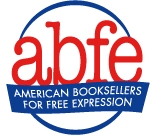- Categories:Advocacy [1]Free Expression [2]
ABFE Defends Investigative Reporting [3]
- By Chris Finan [4]
 [5]Booksellers have joined publishers, authors, and librarians in urging a federal appeals court to invalidate an Idaho law that would suppress undercover investigations of animal abuse and other illegal conduct at public or private agricultural facilities. On Friday, June 24, American Booksellers for Free Expression [5], the Association of American Publishers, the Authors Guild, the Freedom to Read Foundation, and the Media Coalition Foundation filed an amicus brief [6] in a case challenging the law before the Ninth Circuit Court of Appeals.
[5]Booksellers have joined publishers, authors, and librarians in urging a federal appeals court to invalidate an Idaho law that would suppress undercover investigations of animal abuse and other illegal conduct at public or private agricultural facilities. On Friday, June 24, American Booksellers for Free Expression [5], the Association of American Publishers, the Authors Guild, the Freedom to Read Foundation, and the Media Coalition Foundation filed an amicus brief [6] in a case challenging the law before the Ninth Circuit Court of Appeals.
The Idaho law creates a crime of “interference with agricultural production,” making it illegal to obtain employment at an agricultural facility with “intent to cause economic or other injury” or to make unauthorized audio or visual recordings of the operations of the facility.
The Animal Legal Defense Fund, People for the Ethical Treatment of Animals, and other animal rights groups have challenged the law because it prohibits a reporter or other investigator to gather and publicize evidence of wrongdoing. Lawmakers cited the bad publicity generated by such investigations as one of the reasons for passing the law.
The amicus brief argues that the law “embodies the perverse premise that keeping private businesses safe from prying eyes is more important than making the public aware of animal cruelty, unsanitary food production, or unsafe working conditions,” the brief says. “It facilitates state-sponsored censorship of matters of great public importance.”
The brief declares that the law is a direct attack on the kind of investigations that have changed the course of American history. Upton Sinclair conducted seven weeks of undercover reporting in the Chicago stockyards for The Jungle, which led to the passage of the Pure Food and Drug Act.
The brief cites many other examples of reporting that would have been impossible under the Idaho law: reporter Nelly Bly posed as a patient to write about conditions in mental hospitals in the 1890s; John Howard Griffin wrote Black Like Me, describing his experience pretending to be African American in the South during the 1950s; and Barbara Ehrenreich worked minimum wage jobs to gather material for Nickel and Dimed.
Although the Idaho law applies only to agricultural businesses, the brief expresses concern over the possibility that it will open the door to similar laws banning secret investigations of any business. North Carolina has already passed such a law, which is also being challenged.
The State of Idaho is appealing a decision by a district court that struck down the law as a violation of the First Amendment.